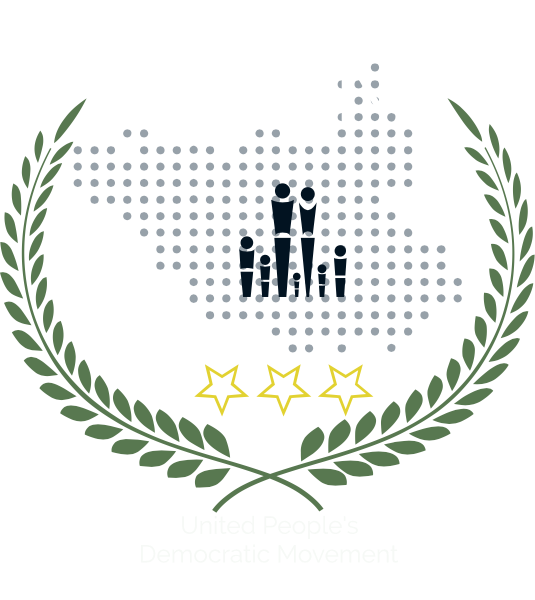Ambassador Nikki Haley
U.S. Permanent Representative to the United Nations
AS DELIVERED
Thank you, Mr. President, and thank you to the briefers for talking about this very important issue that has faced us.
The United States has been a supporter of South Sudan from the beginning. Since independence, we have invested well over $11 billion in South Sudan and the government of President Kiir. What began with so much promise has slipped into a state of horror, one that has haunted all of us for over four years now. And so we’ve tried to help. We’ve tried to find a solution.
This Council has tried to help as well. Our support has consisted of much more than mandating a peacekeeping mission. The Security Council has lent its expertise, its guidance, and its credibility to the effort to help South Sudan’s leaders find peace. We have treated the Kiir government as a partner in this effort, and we have assumed that the best interests of the people were its priority. And so we welcomed President Kiir’s order for free and unhindered access for humanitarian groups in November. But instead of reaching more struggling South Sudanese, aid workers continued to be blocked in record numbers and the parties just won’t stop fighting.
President Salva Kiir’s government was “increasingly proving itself to be an unfit partner” in efforts to restore peace.
US Ambassador Nikki Haley to UN Security Council
The government continues to insist that aid workers pay high fees just to provide assistance to the people of South Sudan. These fees would cost the humanitarian community $7.6 million – money that should be used to provide clean water in a country plagued by cholera. It could provide shelter for some of the two million internally displaced. Or it could feed some of the six million people facing life-threatening hunger.
Nonetheless, our support has continued. We were encouraged by the efforts of South Sudan’s neighbors to create a forum to negotiate peace. But President Kiir delayed and attempted to undermine the process. We welcomed the cessation of hostilities agreement this forum produced in December. But hours after the agreement went into effect, it was violated. Hours.
Instead of reporting the end of fighting in South Sudan, independent ceasefire monitors are reporting government forces continued their deployments despite the agreement. Not surprisingly, more fighting followed. Opposition forces are also responsible for the fighting. Forces under Riek Machar’s command spearheaded an attack in which at least 15 civilians were killed. And on January 4, forces loyal to a former South Sudan army chief orchestrated an attack on a government checkpoint.
All of this is bad news. It’s not just a lack of forward momentum; things are going backwards in South Sudan.
Just last month, President Kiir promoted three generals who this Council sanctioned in 2015. These are men who led the slaughter of innocent South Sudanese children, women, and old men. Hundreds of victims reportedly were buried in mass graves. And the Government of South Sudan decided to promote their killers. Human Rights Watch called this a “slap in the face of justice.” It is also a slap in the face of the Security Council, and the nations who have supported the Kiir government. It is a slap in the face of basic decency.
Our attempts to ease the suffering of the people of South Sudan aren’t working. And what’s worse, we’re failing; not despite the leadership of South Sudan, but because of it. The time has come to acknowledge the hard reality that the leaders of South Sudan are not just failing their people, they are betraying them. And so this Council is at a crossroads. We are morally obligated, and obligated under the terms of the UN Charter, to address threats to international peace and security in South Sudan. We cannot stand by idly as innocent civilians are murdered and raped.
We must change course. It’s long past time that the Security Council establish an arms embargo on South Sudan. Rather than continue to hold endless meetings on a crisis that only becomes worse each month, I urge my fellow Council members to support an arms embargo. This isn’t punishment. Nor is it a meaningless gesture. It is something we can do to actually help the people of South Sudan – to slow the violence, slow the flow of arms and ammunition, and protect innocent lives. Every Council member can, and should, act on the position we all took in our December 14 Presidential Statement to impose costs and consequences on those who undermine the peace process in South Sudan.
At the upcoming IGAD High-Level Revitalization Forum, the parties must find the political will to compromise on longer-term security and governance arrangements that meet the needs of South Sudan’s people. If they don’t, the Security Council should work with the region to find a new path to pursue peace.
At the upcoming AU Summit, we urge the African Union to consider seriously the accountability measures it pledged for those who refuse to pursue peace. The AU can hold these individuals responsible for violating the ceasefire and obstructing the peace process, including through the establishment of the Hybrid Court for South Sudan. And it is past time for the leaders of Uganda and Kenya to get involved and put pressure on President Kiir. They are key players in the success of a true peace process. The Government of South Sudan is increasingly proving itself to be an unfit partner for this Council and any country seeking peace and security for the people of South Sudan.
The United States will never give up on this effort. But if there is to be true peace in South Sudan, its leaders must step up and make a true commitment to end this conflict once and for all. The time is theirs to determine the future of South Sudan.
Thank you.
###
